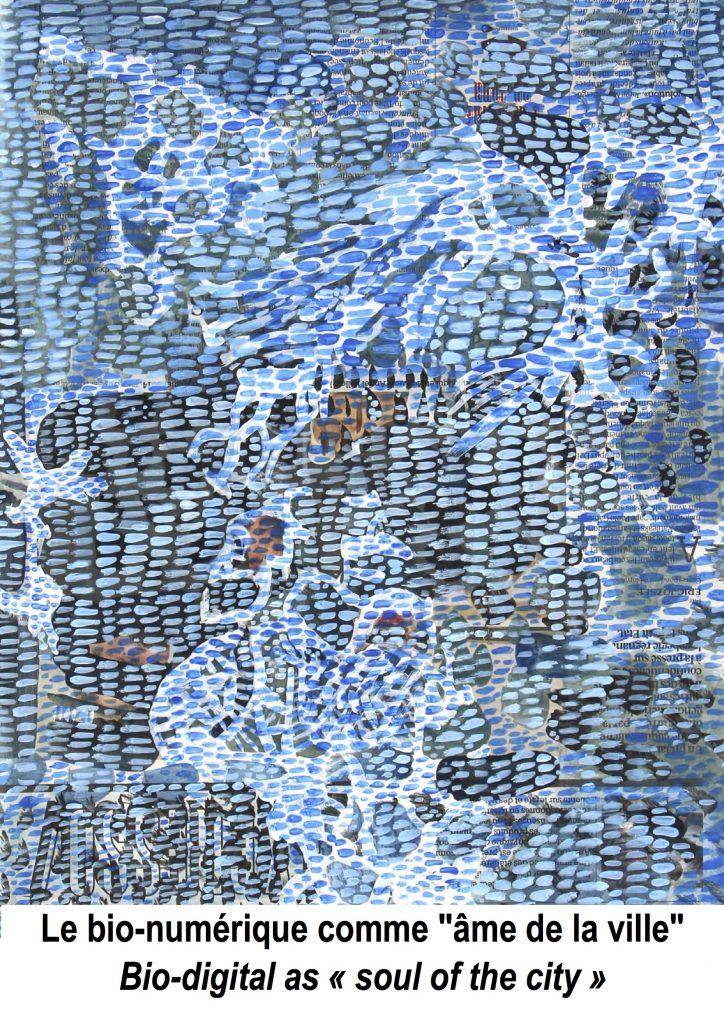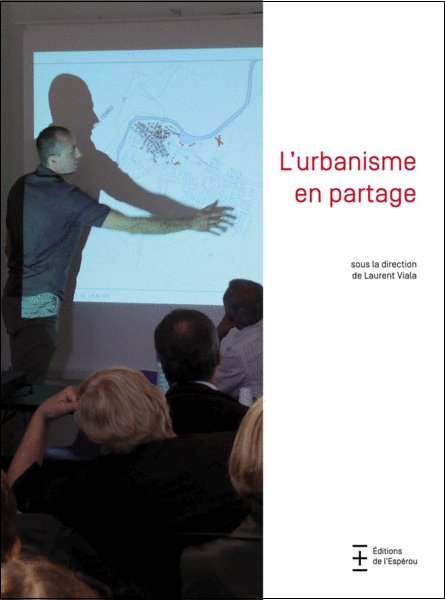City and agriculture. Architectural, urban and territorial innovations
Work directed by Lambert Dousson, Hassan Ait Haddou, Brigitte Nougarèdes, Pascale Scheromm, Christophe Soulard, Laurent Viala
City and agriculture. Architectural, urban and territorial innovations
Work directed by Lambert Dousson, Hassan Ait Haddou, Brigitte Nougarèdes, Pascale Scheromm, Christophe Soulard, Laurent Viala
The International Experimental Workshop for Bio-digital city is invited to the night of ideas 2018. This global event, initiated by the French Institute, is relayed in more than 50 countries. The City of Science and industry participates in this event, with a program called "I imagine Tomorrow", sponsored by Etienne Klein, physicist, philosopher of science. The program : discussions and presentations of work. Claire Bailly and Jean Magerand were invited to open and host a debate on the theme "Smart city, Ideal city?". This intervention is the occasion of an article published by The conversation, partner of the event. Throughout the evening, the work of the Experimental Laboratory (Universcience Partnership/International Experimental Workshop for Bio-digital city) is presented to visitors. Watch the video of the debate:
 Towards the complex projétation the international Bio-Digital thought movement is developing on a Franco-Korean axis. It brings together academics and creatives. These specialists reconcile new methods of scientific analysis and new approaches to creation and development. They want to meet the new demands of the people and meet the new planetary constraints. This movement of thought is interested in the new methods of Constitution/re-constitution of the real proposed by the digital and the biological. How can the parameterization, the algorithm, the Écosystémie, the self-organization, fertilize and enrich the project approaches in the fields of architecture, urbanism, landscape, agriculture, governance, art, Sustainable development? That is the central question. The new approaches of projétation are to be examined. Continue reading
Towards the complex projétation the international Bio-Digital thought movement is developing on a Franco-Korean axis. It brings together academics and creatives. These specialists reconcile new methods of scientific analysis and new approaches to creation and development. They want to meet the new demands of the people and meet the new planetary constraints. This movement of thought is interested in the new methods of Constitution/re-constitution of the real proposed by the digital and the biological. How can the parameterization, the algorithm, the Écosystémie, the self-organization, fertilize and enrich the project approaches in the fields of architecture, urbanism, landscape, agriculture, governance, art, Sustainable development? That is the central question. The new approaches of projétation are to be examined. Continue reading
Text by Claire Bailly, published in the collective book Urbanism in sharing, under the direction of Lau rent Viala fourth cover: Continue reading
rent Viala fourth cover: Continue reading

Last December, the French government opened its interdepartmental portal data.gouv.fr, relaunching the debate on L”open-data ‘. In residency at the lyrical Gaîté, students from ESAG-Peninghen worked last semester on the theme ‘ We Are Data ‘. A loan for a rendition? Continue reading
 How can we grasp the notions of probability and uncertainty since the data city exists? As part of a project, can passing these datas to the filter of predictive analysis be a possible way of giving them meaning? What problems arise at the intersection of these two elements? Artic Continue reading
How can we grasp the notions of probability and uncertainty since the data city exists? As part of a project, can passing these datas to the filter of predictive analysis be a possible way of giving them meaning? What problems arise at the intersection of these two elements? Artic Continue reading 
In a guided analysis of the Attali report, the architect and urban planner Jean Magerand assumes the role of Candide; It does not address the problems that are annoying because it is the working method and the areas of design, environment and construction, in the broad sense, that have taken its attention. A useful model? Prospective chronicle. Continue reading

Why a prospective and architecture section? Because we must respond to an expectation too long dissatisfied, because we suffer from a time that is polarizes especially on the present and the short term and so little on the future, and because, more simply, we like to look at the distant future the Eyes in the eyes. Prospective chronicle of Jean Magerand and Claire Bailly. Continue reading

What quality (s) for the Branly Museum of Jean Nouvel with regard to essential values constituting the new culture in the process of establishing itself in our civilization? In the field of architecture, the world of ideas would remain blind to the transformations of the contemporary world? Prospective chronicle of Jean Magerand. Continue reading

When we talk about foresight, what could be more normal than to evoke the rising generation of architects. I have chosen to present five students diplômables among those who have enrolled in the "prospective group" which I animate at the School of Architecture of Paris-la-Villette. Prospective chronicle of Jean Magerand.

The recent Grand Prix of Architecture, Rudy Ricciotti, has blasted the new HQE standards, insisting that architects will be bridled in their creativity. According to him, over-insulations and removals of thermal bridges will bundle the architectural hardware in their binding and unsightly coat. Prospective chronicle of Jean Magerand.
This column was first published on CyberArchi on September 20, 2007

Promoting a forward-looking speech requires constant attention to anything that can significantly influence the evolution of contemporary thought. In history, the future often begins with an evil-being in the present, whose symptoms are only discerned, most of the time harmful, without being able to perceive neither the causes nor the mechanisms.

Working and expressing oneself on foresight inevitably leads to a critical look at our contemporary ways of doing and thinking. Foresight disturbs the conformism and therefore requires, to express itself fully, a medium of free expression. Also, when Christophe Leray asked us to open a forward looking section in the architect's mail we did not hesitate. Continue reading


Making life easier in the city with new methods? Since September 2010, it is the goal of the new master specialized URBANTIC launched by the School of Engineering of the city of Paris (E.I.V.P.) soon joined by the Ecole des Ponts Paris Tech. A training based on an observation: new knowledge can improve the quality of life in the city. Prospective chronicle.

In the face of environmental urgency, ‘ recessionary ‘, ‘ revisionist ‘ or ‘ revolutionary ‘ utopias are Flores today. Whatever the future they are destined for, these systems of thought imply that a transformation of the living environment will take place. But which one? Prospective chronicle signed by Jean Magerand. Continue reading


"In many respects, the digital world is a world of generalized ornament," says Antoine Picon *, a Harvard professor. "originally presented as synonymous with a dangerous dematerialisation, the diffusion of digital tools has, in fact, contributed to the question of materiality," he says. Three-part meeting * *.